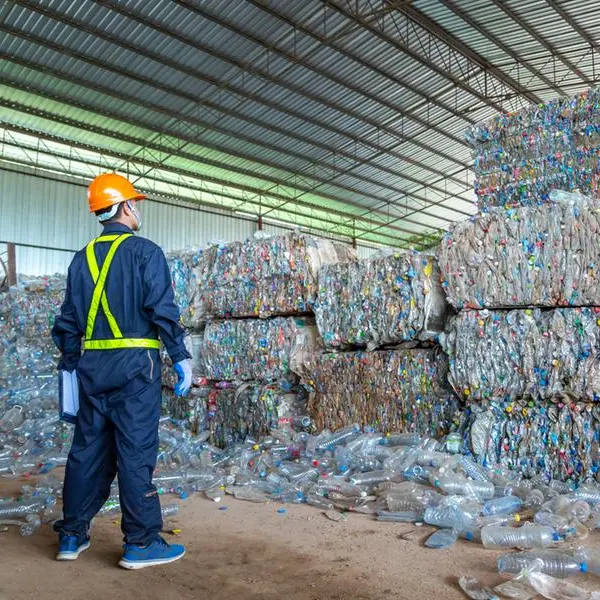PHOTO
Doha: Qatar is making significant progress in capitalising on growth within the Internet of Things (IoT) sector, with projections indicating a revenue generation of QR4.72bn ($1.3bn) for this year. This growth is attributed to a range of diversified enhancements propelled by smart city technologies, as reported by Statista.
Among the various sectors, the automotive IoT segment is anticipated to dominate the market, with a projected volume of QR1.2bn ($353.3m) in 2024. The report further indicates that the IoT market is expected to experience a steady increase, with a compound annual growth rate (CAGR) of 6.77% from 2024 to 2029, ultimately reaching a market volume of QR6.54bn ($1.8bn) during the forecast period.
The report highlights that Qatar is recognised as one of the “fastest-growing” economies in the Gulf Cooperation Council (GCC) and the broader Middle East, undergoing a significant digital transformation.
On a global scale, Statista notes that the United States is projected to lead the IoT market in revenue generation, with an estimated $342.5bn expected in 2024, while China maintains its position as the leading manufacturer of IoT devices.
Qatar has been actively pursuing the adoption and implementation of IoT technology, driven by several critical factors, including government initiatives and investments such as the Tasmu Smart Qatar program, which aims to establish Qatar as a smart nation, heavily leveraging IoT for various applications.
Additionally, substantial infrastructure development has taken place, with Qatar investing significantly in robust telecommunications infrastructure, including the establishment of 5G networks, which are vital for IoT connectivity.
Qatar’s swift embrace of smart city technologies establishes it as a prominent market for Internet of Things (IoT) solutions within the Middle East region.
The nation’s commitment to Smart Cities has led to the development of award-winning initiatives such as Msheireb Downtown, a QR20bn ($5.5bn) mixed-use development spanning 31,000sqm, and Lusail Metropolis, a smart city project estimated at QR164bn ($45bn) that covers 38sqkm.
Both Msheireb Downtown Doha and Lusail City exemplify the implementation of IoT, incorporating advanced technologies across various facets of urban life, including transportation, energy management, and waste management.
There has also been significant adoption of IoT across various sectors in Qatar, particularly in industries such as oil and gas, where IoT is increasingly utilized for remote monitoring, predictive maintenance, and operational optimization; healthcare, where IoT devices are being deployed in hospitals and clinics for patient monitoring, inventory management, and remote healthcare services; and transportation, where numerous smart transportation systems, including intelligent traffic management and connected vehicles, are under development.
The advent of 5G technology has undoubtedly transformed the current wireless communication methods employed for IoT applications. The success of IoT is contingent upon the availability of reliable and affordable wireless connectivity, interoperability, and standardized protocols. The impact of 5G on the design of IoT ecosystems is profound, particularly concerning reliability, scalability, latency, security, and the degree of individual control over connectivity parameters, with Qatar among the top leaders in this domain.
It is noteworthy that Ooredoo made a significant achievement by becoming the first operator globally to launch a live 5G network in May 2018. This milestone followed a series of impressive accomplishments, including the region’s inaugural 5G trials conducted on Qatar National Day in 2016, the establishment of 10 5G-ready base stations in May 2017, and the initiation of a 5G Business services trial in collaboration with Qatar Airways in November 2017.
In a recent development, Vodafone Qatar successfully validated the 6GHz spectrum utilizing advanced 128T/R Massive MIMO technology, achieving user speeds exceeding 10Gbps through the use of four carriers, each with a bandwidth of 100MHz. This demonstration highlights the capabilities of 5.5G on the 6GHz upper mid-band spectrum, as part of Vodafone Qatar’s second phase trial of 5.5G technologies.
A recent report from Opensignal, a leading global provider of independent insights that integrates network experience and market performance across converged, wireless, and broadband operators, revealed that Qatari users experience the fastest average 5G download speeds among countries in the EMEA region.
According to Opensignal, Qatar ranks first in 5G download speeds among countries with a land area of less than 200,000 square kilometers, achieving an impressive score of 359.2Mbps, which is 22% faster than Denmark, the second-ranked country. Kuwait and Bahrain follow in third and fourth places, respectively, while the UAE ranks seventh with a speed of 260Mbps.
Regarding the leading companies in Qatar’s IoT sector, a study conducted by Mordor Intelligence identified the top five companies based on market share reports for 2023 and 2024. The list includes Labeeb IoT, a product of the Qatar Mobility Innovations Center, in the first position, followed by Ooredoo, Vodafone Qatar, Cisco Systems, and Huawei Technologies in that order.
© Dar Al Sharq Press, Printing and Distribution. All Rights Reserved. Provided by SyndiGate Media Inc. (Syndigate.info).





















